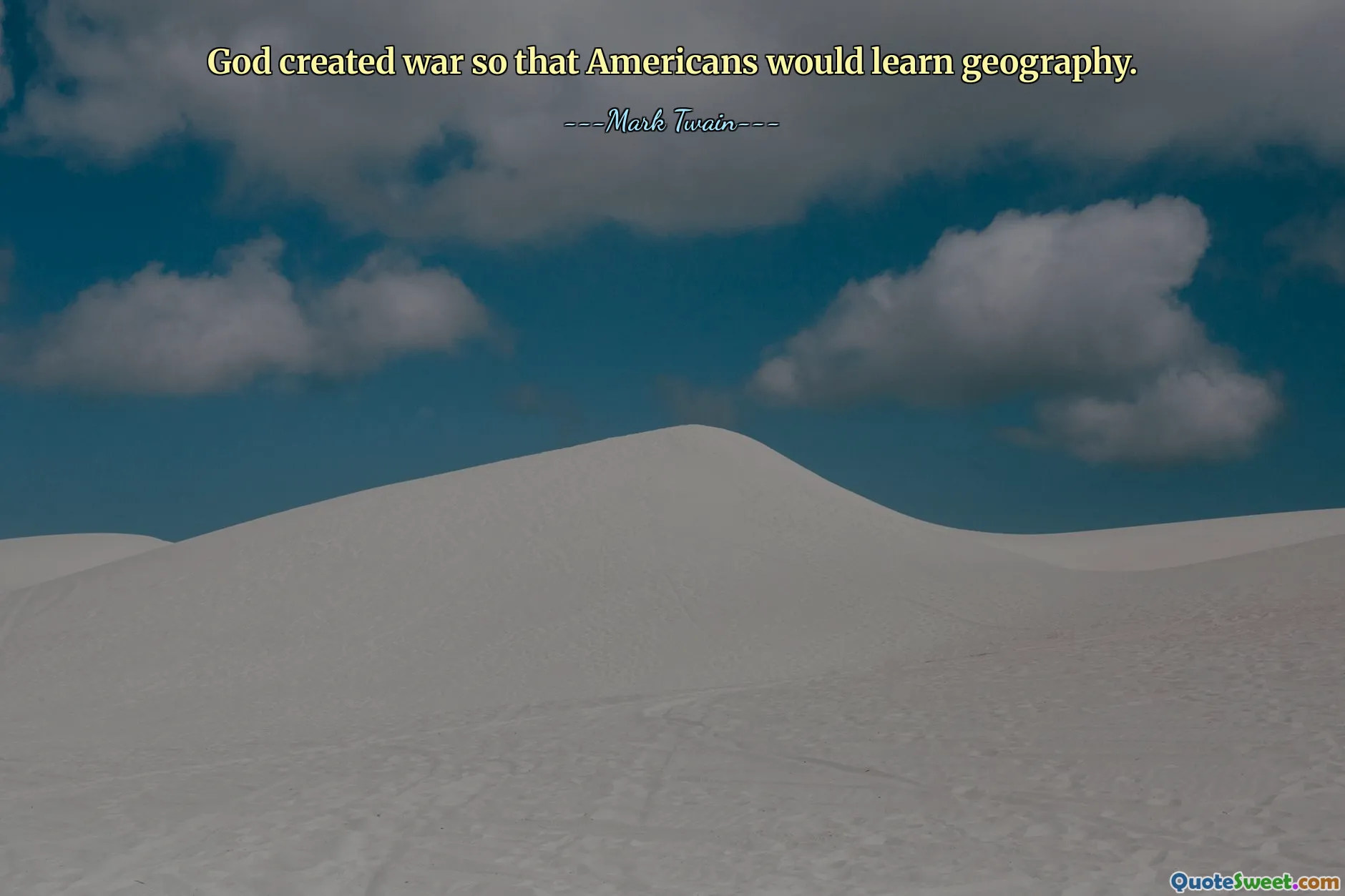
God created war so that Americans would learn geography.
This quote cleverly highlights the idea that conflict and war often serve a broader purpose than merely destruction; they compel nations and individuals to understand the world around them. At first glance, the statement might seem provocative or even cynical, but it invites reflection on the role of war in shaping awareness and knowledge. Throughout history, wars have been catalysts for territorial exploration, scientific discovery, and cultural exchange, all of which contribute indirectly to a nation's geographical and strategic understanding. For Americans, whose vast and diverse landscape borders multiple nations and oceans, engaging in global conflicts has often required a deeper awareness of world geography, borders, and geopolitics. The quote also underscores how sometimes it takes chaos and adversity to motivate learning and growth, serving as a stark reminder of the costs associated with such enlightenment. While peace fosters stability and progress, conflict sometimes accelerates awareness of the world's complexities. However, this perspective should not be taken as an endorsement of war but rather as an observation of its unintended lessons. The provocative nature of the statement prompts us to think about the value of knowledge and education, and how adversity can sometimes serve as a compelling instigator for acquiring essential understanding. It's important to critically evaluate the implications—understanding the cost of wars alongside the insights they might inadvertently provide, questioning whether the learning gained justifies the suffering endured. Overall, this quote challenges us to reconsider how we perceive the driving motives behind knowledge and to acknowledge the complex, often uncomfortable circumstances that lead us to understand our place within the world.










